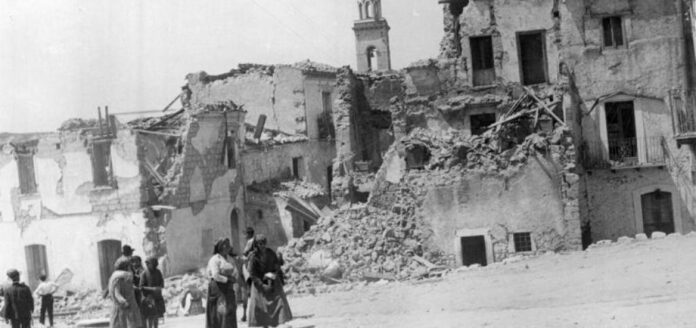Rome (NEV), November 26, 2020 – “40 years ago the Irpinia earthquake came with a violence that no one was prepared for. In a few hours it became clear that a vast region of southern Italy was totally destroyed and that the Country had to call upon all its energy to face a tragedy that, in post-war history, was never seen before.
At that juncture, the Federation of Protestant Churches in Italy (FCEI) wanted to do its part by organizing first aid; the Protestant Youth Federation (FGEI) also moved, together with various local communities, the leaders of the Youth Centers, numerous diaconal works.
It was an unprecedented choral effort that, in a short time, made possible various relief interventions, some of which took root and lasted beyond the first emergency. I like to remember the Senerchia “tent” where for months hot meals were served to homeless people, or the work developed in Ruvo del Monte where dozens of evangelical volunteers from Italy and from all over the world animated a program aimed at children who, in addition to their house, had also lost their school.
But that was only the first phase of an intervention that – it was immediately clear – was intended to continue over time. Precisely to give consistency and continuity to this commitment, the Social Action Service (SAS) was established within the FCEI. The sister churches of various European countries were ready to accompany the Italian protestant churches in longer-term projects. The guiding idea was that not only the houses should be rebuilt but also the economic, social and cultural net-work of that area. Supported by FCEI, agricultural cooperatives, residential villages, meeting centers arose. We recall that of Monteforte Irpino, near Avellino; and the one of Naples Ponticelli, where the Casa Mia – Emilio Nitti Social Center still stands today. Other initiatives have run out over time, others have been converted. But FCEI’s clear intention was to give continuity to this commitment in the South in the hope that, starting from the tragedy of the earthquake, the sprout of a new civil society could grow, freed from the blackmail of clientele and superstitions, capable of promoting sustainable enterprises and produce a new quality of development. The explicit criticism was of the “cathedrals in the desert” decadent model with which the South – this was the language of the time – was repaid for its delay in development. A third phase of analysis and study then began, which produced conferences, books and a fine-tuning of the various interventions.
It is difficult to make an assessment of that season, very important for the FCEI’s life. The economic balance of that venture is definitely in the red: some initiatives, especially economic ones, failed; others have not grown; only a few, over time, have been able to reinterpret themselves and still today manage to offer a precious service. But then there is also the ethical balance of those months, and the discussion becomes different. At that juncture, perhaps as had never happened before, the Italian Protestants did something together and were able to effectively contribute to a major national reconstruction project. Many young people of that time were formed right between the tents of Irpinia and the churches that make up the Federation understood the importance of being together and of sharing common working tools. For the FCEI it was also an opportunity to witness and preach to the Country in the belief that a true reconstruction does not only concern the stones but must involve hearts and consciences. And that unforgettable lesson is still alive today”.
Irpinia, a story that belongs to us
Last November 23 was the 40th anniversary of the devastating earthquake that razed entire towns to the ground, causing nearly three thousand deaths, more than 8thousand injured people and 300thousand homeless. A reflection by pastor Luca Maria Negro, president of the Federation of Protestant Churches





























